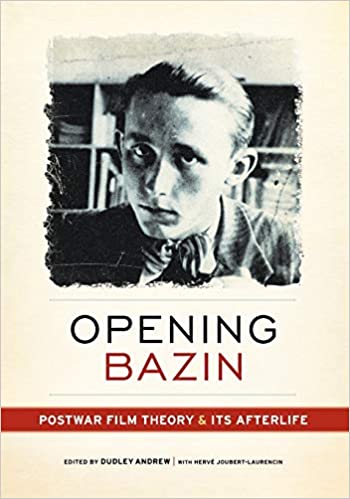André Bazin is known primarily as an advocate of realism, yet his admiration for animation, abstract film, and the essay-documentary belies a deeper mission: to advocate for cinema's variety. Analyzing his criticism of films by the likes of Norman McLaren, Jean Mitry, and Chris Marker, we find a Bazin who shepherds filmmakers in marginal genres away from realistic representation. This unexpected perspective clarifies the social motive behind Bazin's realist advocacy—the "popular vocation of cinema." Bazin redefines "avant-garde" filmmaking in relation to this populist aim and relegates elitist works, such as hard-core surrealist films, to a decadent flanc-garde.
Analyzing his criticism of films by the likes of Norman McLaren, Jean Mitry, and Chris Marker, we find a Bazin who shepherds filmmakers in marginal genres away from realistic representation.
With the full range of his voluminous writings finally viewable, André Bazin seems more deserving than ever to be considered the most influential of all writers on film. His brief career, 1943-58, helped bring about the leap from classical cinema to the modern art of Renoir, Welles, and neorealism. Founder of Cahiers du Cinéma, he encouraged the future New Wave directors to confront his telltale question, What is Cinema? This collection considers another vital question, Who is Bazin? In it, thirty three renowned film scholars--including de Baecque, Elsaesser, Gunning, and MacCabe--tackle Bazin's meaning for the 2st century. They have found in his writings unmistakable traces of Flaubert, Bergson, Breton, and Benjamin and they have pursued this vein to the gold mine of Deleuze and Derrida. They have probed and assessed his ideas on film history, style, and technique, measuring him against today's media regime, while measuring that regime against him. They have located the precious ore of his thought couched within striations of French postwar politics and culture, and they have revealed the unexpected effects of that thought on filmmakers and film culture on four continents. Open Bazin; you will find a treasure.
